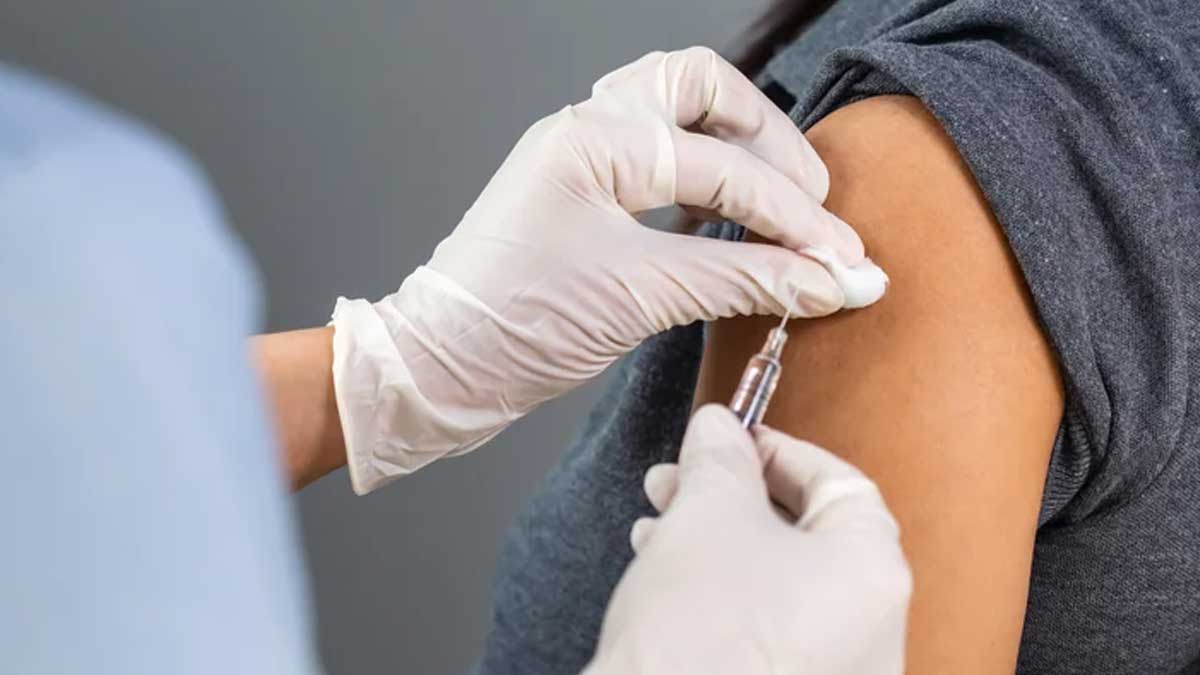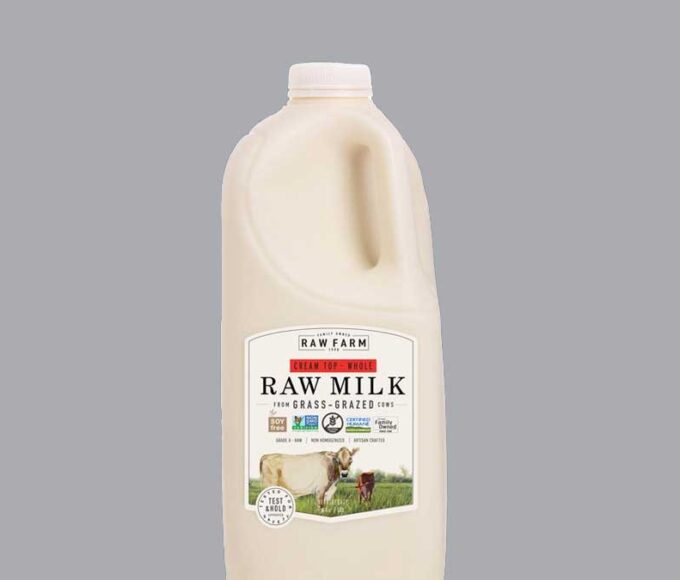- Home
- Billionaires
- Investing Newsletters
- 193CC 1000
- Article Layout 2
- Article Layout 3
- Article Layout 4
- Article Layout 5
- Article Layout 6
- Article Layout 7
- Article Layout 8
- Article Layout 9
- Article Layout 10
- Article Layout 11
- Article Layout 12
- Article Layout 13
- Article Layout 14
- Article Sidebar
- Post Format
- pages
- Archive Layouts
- Post Gallery
- Post Video Background
- Post Review
- Sponsored Post
- Leadership
- Business
- Money
- Small Business
- Innovation
- Shop
Recent Posts
FDA Panel Backs New COVID Vaccines for JN.1 Variant by Fall

An expert panel from the Food and Drug Administration (FDA) voted unanimously on Wednesday to develop new COVID-19 vaccines specifically targeting the JN.1 variant lineage, which currently comprises the majority of strains circulating in the U.S. The FDA’s independent Vaccines and Related Biological Products Advisory Committee reached this decision after reviewing evidence that the JN.1 lineage, with its associated subvariants, has become the most prevalent in the country. The agency is expected to finalize its stance on the new vaccine in the coming days, which will likely pave the way for the production and distribution of these updated vaccines.
Pharmaceutical companies Pfizer, Novavax, and Moderna have each announced that their updated vaccines will be ready this fall, ahead of the 2024-2025 flu season. During the FDA meeting, evidence was presented showing that vaccines targeting the JN.1 lineage provided greater protection against the dominant FLiRT variants than the existing XBB.1.5 vaccine. The FLiRT variants are subvariants of JN.1 with similar mutations, and they currently account for over 90% of all COVID-19 cases in the U.S., according to data from the Centers for Disease Control and Prevention (CDC) as of May 25. These mutations allow the FLiRT variants to spread more efficiently and evade some of the immunity that has developed in the population from previous infections and vaccinations.
Dr. Peter Marks, the director of the FDA’s Center for Biologics Evaluation and Research, noted that although there are some side effects, such as myocarditis, the new vaccines are deemed safe and effective. Marks emphasized that the benefits of the vaccines in preventing severe illness and death from COVID-19 far outweigh the risks of side effects. The panel considered whether to recommend vaccines targeting specific JN.1 variants like JP.2 or JP.3, but ultimately preferred a comprehensive JN.1 vaccine. This approach is believed to be more effective in providing broad protection against all the subvariants within the JN.1 lineage.
Each vaccine manufacturer provided different timelines for vaccine readiness. Bill Falstich, Pfizer’s vice president of global supply chain, primary care, stated that Pfizer’s vaccine would be ready immediately upon approval, with sufficient supply to meet expected demand. Novavax projected its vaccine would be available by September 1 and capable of meeting demand. Moderna indicated plans to have vaccines ready by August, pending FDA approval, basing its supply projections on demand from the previous fall and anticipating a launch aligned with the flu season. The availability of these vaccines is critical as the fall and winter seasons approach, bringing with them increased indoor gatherings and higher risks of virus transmission.
The FDA panel’s decision aligns with recommendations from other global health agencies. In April, both the World Health Organization (WHO) and the European Medicines Agency advised that new vaccines should target the JN.1 sublineage, which includes all FLiRT variants. JN.1 became the dominant variant in the U.S. in late 2023, with its FLiRT subvariants taking over earlier this year. Although there is no evidence that FLiRT variants cause different symptoms compared to previous strains, some experts believe they might be more transmissible due to mutations that enhance their ability to spread and evade pre-existing immunity. This could potentially lead to a spike in cases as people gather for summer holidays, despite U.S. cases and deaths having recently declined by 0.1% and 14.3%, respectively, while hospitalizations increased by over 9% since March.
The number of global COVID-19 cases reported to the WHO in the 28 days ending on May 19 was 134,782, a significant decrease from the peak of December 2022 when 44.5 million cases were reported in one week. However, it is important to note that some countries, including the U.S., have not updated their case numbers recently, which could affect the accuracy of the current data. The decline in reported cases is encouraging, but health officials remain cautious about the potential for new variants to emerge and spread, particularly with the upcoming seasonal changes and increased social interactions.
Recent Posts
Categories
- 193 Countries Consortium Partner1
- 193cc Digital Assets2
- 5G1
- Aerospace & Defense48
- AI37
- Arts3
- Banking & Insurance11
- Big Data3
- Billionaires1,106
- Boats & Planes1
- Business332
- Careers13
- Cars & Bikes79
- CEO Network1
- CFO Network17
- CHRO Network1
- CIO Network1
- Cloud10
- CMO Network18
- Commercial Real Estate7
- Consultant1
- Consumer Tech194
- CxO1
- Cybersecurity73
- Dining1
- Diversity, Equity & Inclusion4
- Education7
- Energy8
- Enterprise Tech29
- Events11
- Fintech1
- Food & Drink2
- Franchises1
- Freelance1
- Future Of Work2
- Games149
- GIG1
- Healthcare79
- Hollywood & Entertainment203
- Houses1
- India’s 1000 Richest1
- Innovation46
- Investing2
- Investing Newsletters4
- Leadership65
- Lifestyle11
- Manufacturing1
- Markets20
- Media206
- Mobile phone1
- Money13
- Personal Finance2
- Policy569
- Real Estate1
- Research6
- Retail1
- Retirement1
- Small Business1
- SportsMoney42
- Style & Beauty1
- Success Income1
- Taxes2
- Travel10
- Uncategorized12
- Vices1
- Watches & Jewelry2
- world's billionaires1,074
- Worlds Richest Self-Made Women2
Related Articles
Musk Endorses Mounjaro, Backs Affordable Weight-Loss Drugs
Elon Musk, the CEO of Tesla, made headlines on Christmas Day with...
By 193cc Agency CouncilDecember 27, 2024What Healthcare Can Learn from Nvidia’s Success
The tech industry is undergoing a seismic transformation, with two of its...
By 193cc Agency CouncilDecember 16, 2024Salmonella Triggers Recalls of Costco Eggs and Cucumbers
The recent salmonella outbreak has prompted the recall of two major food...
By 193cc Agency CouncilNovember 30, 2024Bird Flu Found in Raw Milk in California, Recall Issued
California health authorities have confirmed the presence of the bird flu virus...
By 193cc Agency CouncilNovember 25, 2024















Leave a comment